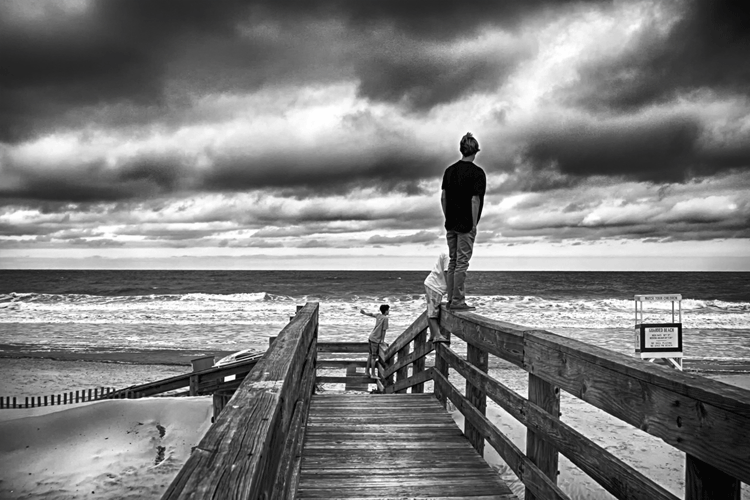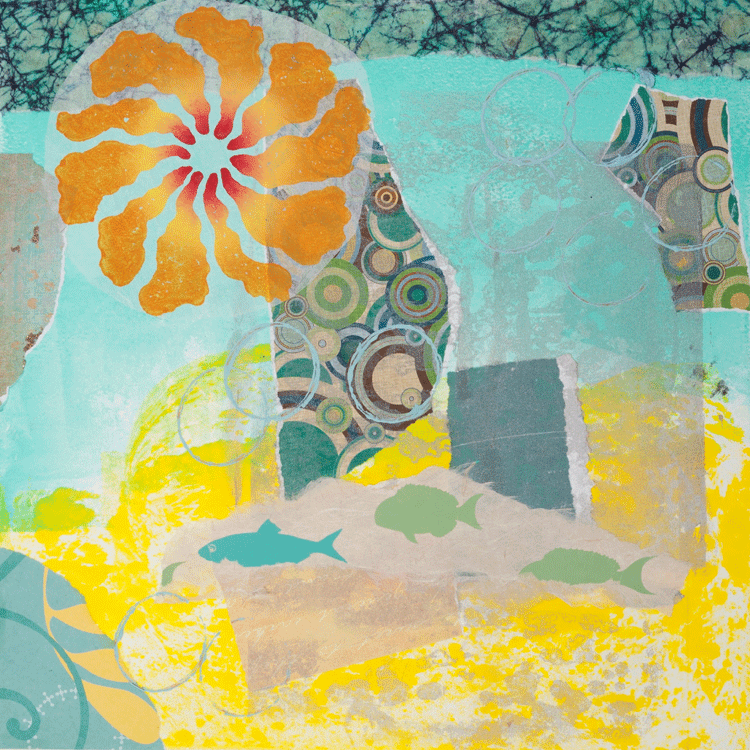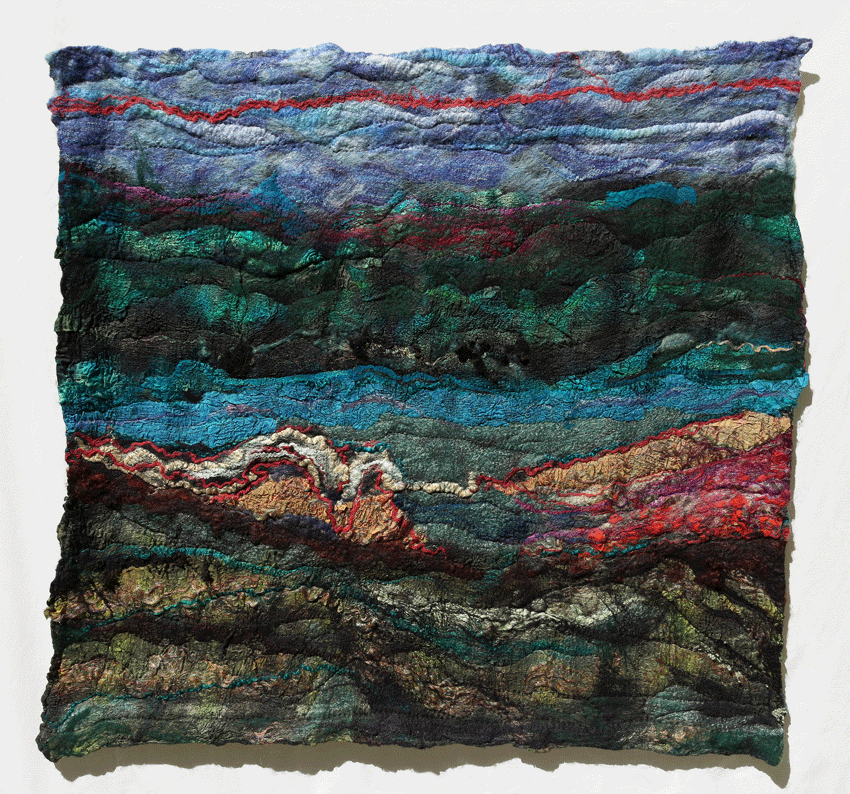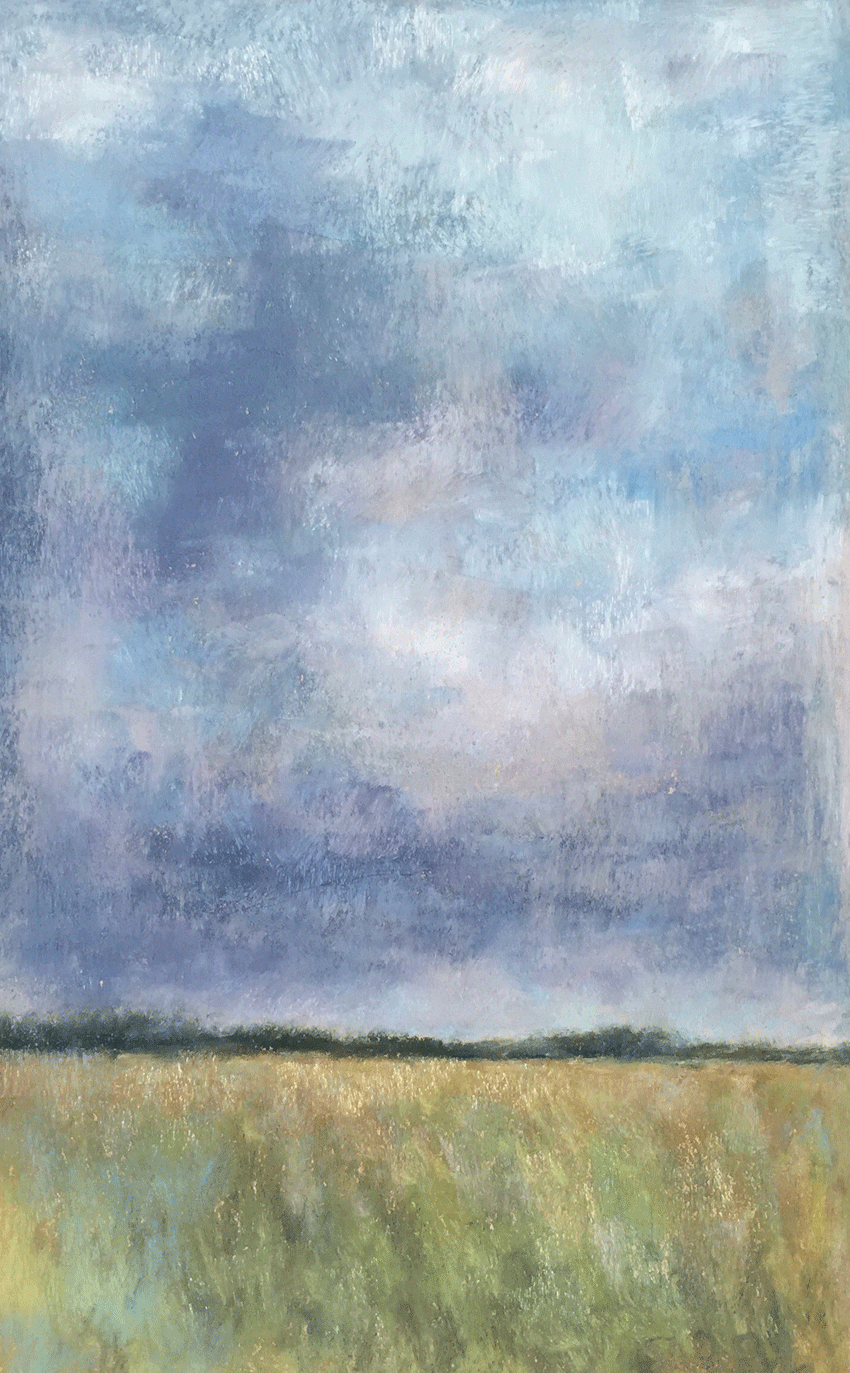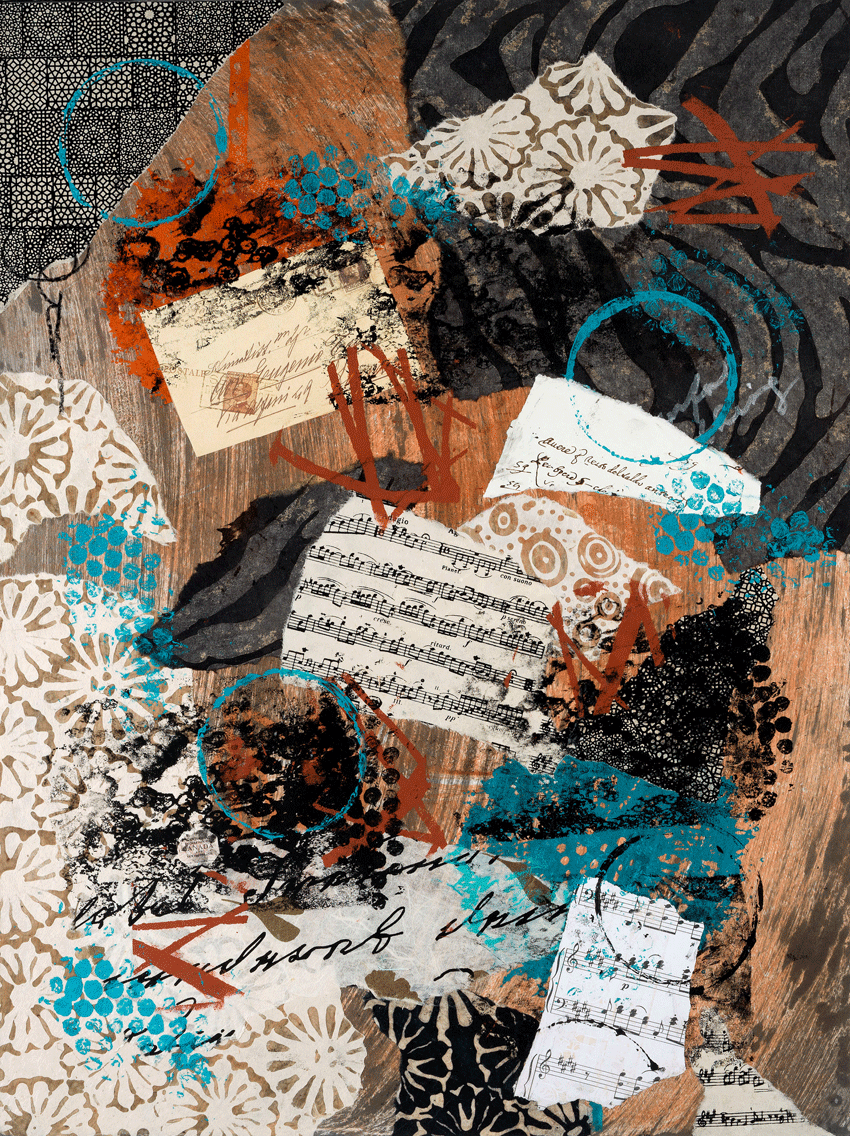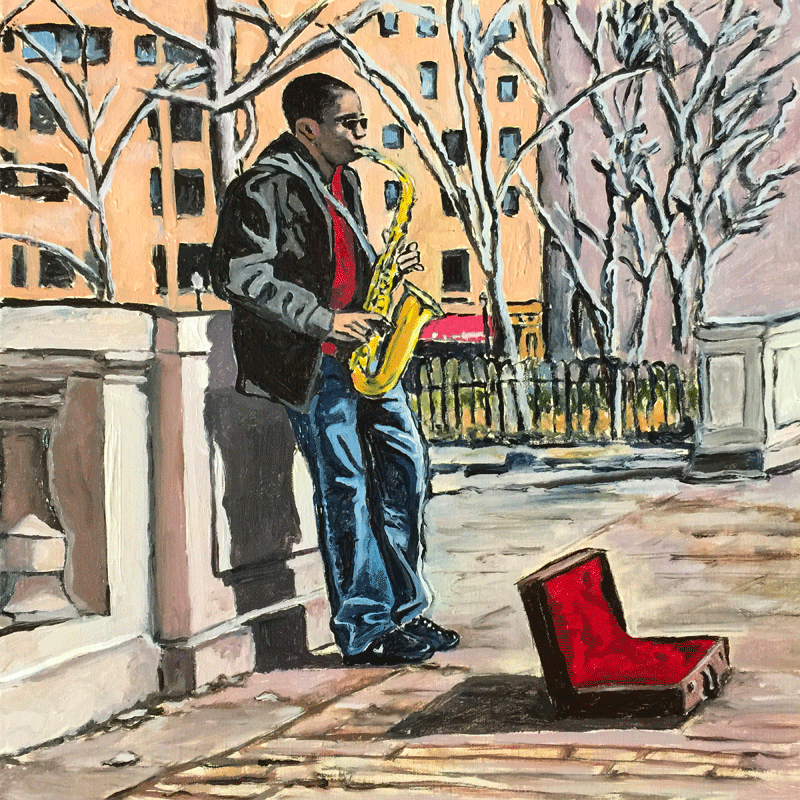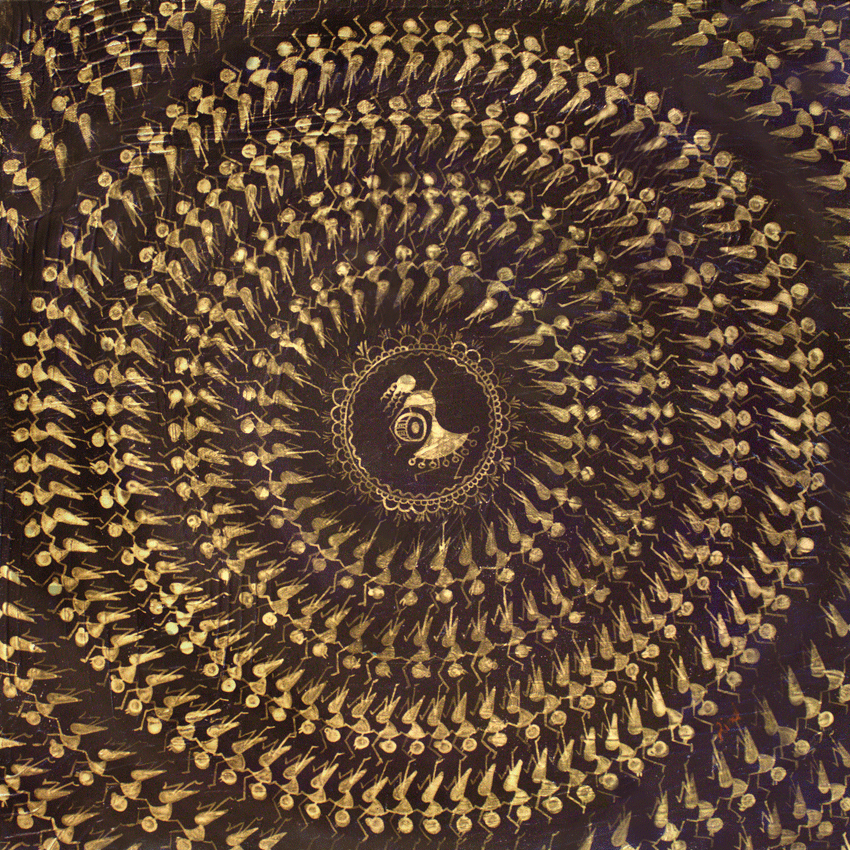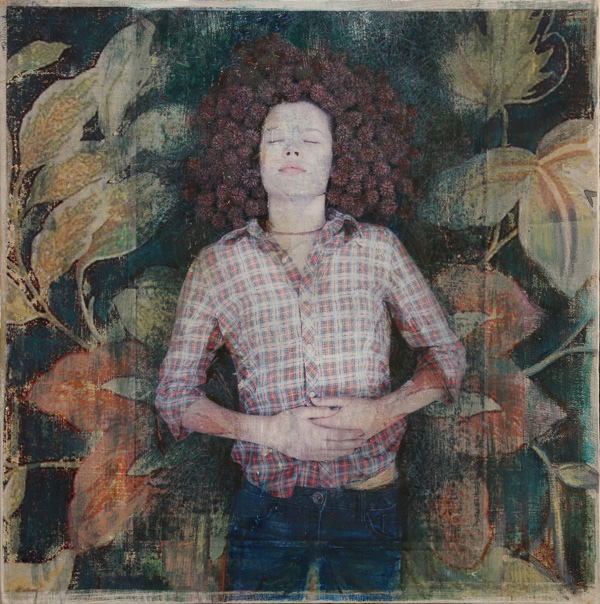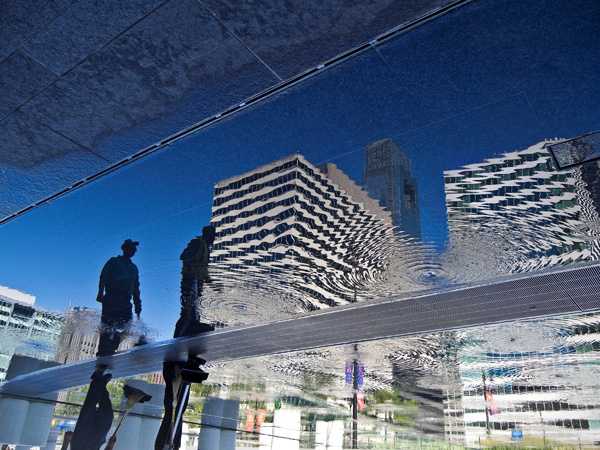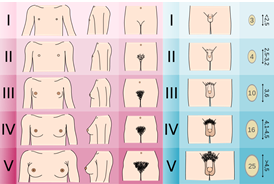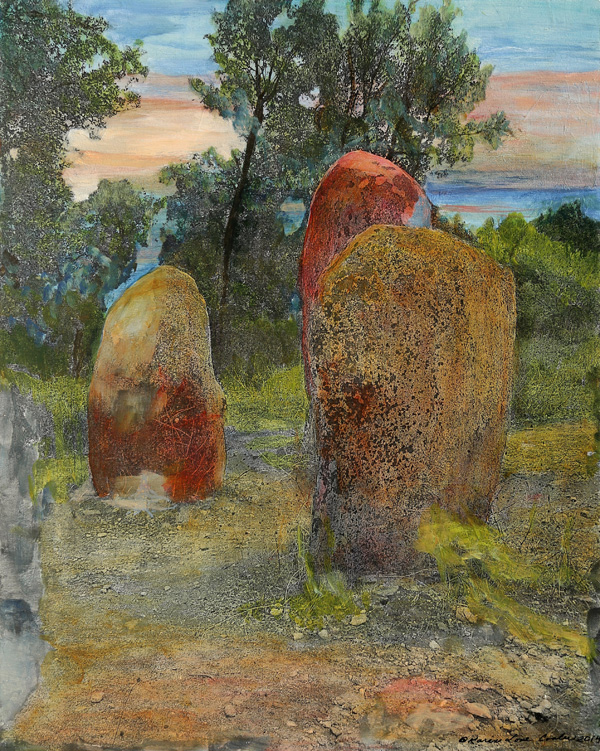I’m not even halfway out the door when one of my girls starts screaming at me over the sound of her hair dryer. I don’t care about her date with her boyfriend; she can close down the salon for one night this week. Jesus, Mary, and Joseph, you’d think I’d asked her to jump off the Walt Whitman Bridge. I don’t ask them for much, but when I do, I expect my girls to be sharp.
“Gina, this ain’t fair,” she says to me. “Since when is it my job to lock up? Where do you need to be all of a sudden?” She looks like she’s going to have a stroke with her vein popping out of her head like that. She’s as red as a tomato.
I tell her, I say, “If you keep getting this riled up, you won’t need to wear any more blush.” She’s around my daughter’s age, and they’re all too young to be wearing so much makeup – the contouring, the smoky eye, the bright lipstick. By the time they’re eighteen, they’ve learned how to hide every flaw. But have they learned how to write a check or do their taxes? I mean, I’m not shy to pile the eye shadow on myself, but I’m pushing fifty. The bags under my eyes can carry more than my purse. I’ve got my own tricks to keep up appearances: layers of concealer, gallons of hair dye, and hours in the mirror every morning. They don’t need all that hassle at their age.
If this girl, Lisa, wasn’t one of the best hairstylists in South Philly, her attitude would’ve gotten her kicked out of my shop a while ago. I’ve owned Bella Luna Salon for almost ten years now. It isn’t big, but every inch of it’s mine, from the sleek shampooing stations to the hair dryers to the neon signs out front. Sometimes, I have to remind her that she works on my schedule not her boyfriend’s. The sooner she learns that the better. She’s a headache, but I have to remember I was that age once too. Besides, she can work wonders with hair. She can fix a part that’s as crooked as Passyunk Ave.
I’m not going to answer her question and broadcast my real business to everybody in the shop, so I lie. “If you have to know, it’s my friend Rita’s birthday. She lives out in Jersey. Happy?”
Poor Mrs. Pizzelle has to sit there the whole time and listen to me scream at this girl. I need to send that woman a thank-you card or a gift certificate or both. She’s a regular at the salon – schedules her hair appointment on Sundays after mass. She always says, “I have my church, but your salon is my retreat.” Ain’t that nice? She gets to brag all day about her family while I rinse her hair.
Before Lisa and I started this screaming match, Mrs. Pizzelle was telling me that her youngest boy, Joey, got into law school.
“Tell him divorce court is where all the money’s at. They say over half of marriages fail nowadays. You can’t beat those odds,” I said. “I’m walking proof.”
I’m always chatty when I cut hair, but she doesn’t like when I bring up my divorce. I couldn’t help myself. She didn’t say anything, of course, she just changed the subject like always. I felt her shoulders tense when I snipped the dead ends of her hair.
Just so I can stop the chaos in the salon, I say to Lisa, “If you can’t handle it, I’m sure Dawn can always take over your appointments.” That fact shuts her up real quick. Dawn’s a sweet girl, but everybody knows the damage she can do to hair. Instead of auburn, the girl dyed Marta Caputo’s hair bright orange. Lisa just grinds her teeth, and gets back to drying Mrs. Lombardi’s curls. I’m still not sure why I keep Dawn around. Mostly, I think, it’s to shut Lisa up at times like this.
It’s quiet once I slam the salon door behind me, but I don’t get any relief. It’s so hot in the city today. All the families must’ve gone packing for one last a trip down the shore. I’m already sweating from running around all day. Sure, the hair dryers don’t help, but I blame our chatter for spreading around even more hot air. My hair has frizzed enough already. I wish I was really meeting Rita. Now, I have to worry about having a sit down with my ex-husband, Ray, with this mop top.
I haven’t told the girls who work for me yet that I let Ray sleep on my couch last night. They have no clue, which is crazy because usually I can’t shut up about him. Forget installing TV’s in the salon, my life is the soap opera. They know all about the cheating, the missed child support, the new girlfriends. They don’t know that Ray showed up desperate on my doorstep yesterday.
After working in heels all day, it wasn’t easy to stand in my doorway and watch him find the words. He said, “Gina, I know we have our issues, but hear me out.” Issues? Ray and I have got the whole subscription.
I was twenty-one when I got pregnant with Maria. That was that. Ray and I were getting married and fast. There was no time to work anything out besides table settings. God forbid I waddled down the aisle of St. Catherine’s with any kind of a belly. The whole neighborhood might have a collective heart attack.
I should’ve realized Ray was cheating on me. I blamed it on the little things: his job working for his father, my time away at cosmetology school, starting the salon, the pregnancy. After I had the baby, he used to say that my thighs looked like coffee cake. I knew he wasn’t serious, but I’d run my hands along the fat on my legs. I should’ve smelled the perfume or found the stray hairs, but I didn’t want to. Instead, he just sat me down one morning and told me all about this new girlfriend. This new “love” he said. I could’ve thrown the entire bathroom sink at him. I’m glad I didn’t. He wasn’t worth nearly as much as all my beauty supplies.
We both got lawyers and set court dates. I got to keep Maria and our shitty house on Eighth Street in the divorce. From day one, I wanted to keep him in my life. I couldn’t picture it without him. I thought it’d be good for Maria too.
Ray was a good father at first. I’d catch him lying on the floor with her on his chest, both of them out cold, Big Bird still yapping on the TV. But he’s been in and out of her life since then. Now, she’s off at college. She’s almost nineteen years old, but when she’s with him, she acts like a little kid who doesn’t want to scare away a butterfly that’s landed on her finger.
And Ray still had the guts to ask me to crash on the couch. He ran his father’s sheet metal business into the ground and his latest girl kicked him out of the apartment.
He still looked good though, and I hated it. Why does he get to be fine wine and I’m last night’s leftovers? First, I told him go find a hotel. But he leaned in and looked at me with those big brown eyes.
“Please, Gina, I’ve got nowhere else to go,” he said. “It’ll just be one night. I promise I’ll stay out of your hair.” So, I caved. He hugged me. I crumbled like a coffee cake.
Sure, I’ve dated here and there since Ray. There are lots of great guys out there, and a few have made their way into my life. But I’ve changed since the divorce. I cut my hair short now. I tease it out for volume so it barely touches my shoulders. It’s dyed bright blond. Ray says I look like a mad scientist, but I don’t care. It’s loud and obnoxious. I think it fits me.
Ray was my biggest crush in high school. Forget my posters of David Cassidy and Bobby Sherman. I used to make Rita drive past his house on Friday nights. She lived right next door to me and her older brother would lend her his beat-up convertible. We’d have our own stakeouts. I’d wait to see which party Ray went to that night.
He always dressed so well. No jeans and sneakers like the other neighborhood boys. He wore button-downs and snuck into the discos. He was a couple years older too. His brown hair was long and feathered and perfect. He looked good and he knew it. He’d have a different date almost every week. They’d walk off into the night together to go dancing. God, someone should’ve called the cops on us for all that stalking we did. Well, someone should have arrested me. Poor Rita was just my getaway driver.
I officially met Ray at Pete DiPalma’s eighteenth birthday. I made Rita drive us after getting ready at her house. She was hopeless with makeup, almost stabbing her eyes out with that eyeliner pencil before giving up. Rita never felt like impressing anybody. If she could, she’d just wear her school uniform everywhere. Book smarts: that was more Rita’s thing. So, like usual, I took over. I gave her big Cleopatra eyes just so we could get out the door.
Of course, I knew Ray and his friends would be there. Why else would we go? Why did I do anything in high school if it wasn’t to get Ray’s attention? That was back when I straightened my curly, brown hair on an ironing board every night. I knew that’s how he liked it. All the girls he dated had straight hair. I must have looked like a cocker spaniel. I probably had the puppy-dog eyes to match. But the heat damage and burns to my scalp were all worth it the second he looked at me.
I did everything like the magazines told you. Look hard to get, but not uninterested. Before I knew it, we were chatting and he was putting his hand on my waist. My heels dug into the shag carpet. He made fun of my earrings, but only so he could touch them. I had to give Rita the slip so he could walk me home that night. But after Ray kissed me goodbye, I wouldn’t hear any of it. My face must have been bright red. I could feel it burning even when his lips were gone.
I still have our prom photos in an old shoebox somewhere. Boy, that was some updo I concocted that night. Ray said he’d never seen hair so big. We danced for hours and the sweat deflated it all. That’s when he started calling me “mop top.” Ray took me dancing almost every night. I was much shorter, but I wore platform shoes so we could be perfect partners. I’d invite him over for dinner. My mother made him ravioli, and he made her laugh till she cried. Sure, everyone said Ray never stayed with one girl for too long, but it was my turn. I wasn’t going to give him up so easy. I knew how he operated. I let him go out with his friends just as long as he came back to me. Even though the rumors started to swirl, I made it work. I used to call up Rita to update her on his record.
She’d probably crack up if she heard this news. She’d love to know how desperate Ray is now. I almost wanted to call her up, but things have changed. She stopped watching “The Ray and Gina Show” a while ago. She got a job as a travel agent and got out of South Philly. She lives out in Cherry Hill now with three kids. Can you believe it? I always knew she’d leave the neighborhood, but I never wanted it to happen. I lost my partner in crime. I’m the godmother to one of her kids, but I’m lucky if I get to see her once a year.
When I get back to the house, Ray’s watching TV. I toss my keys onto the kitchen counter and start boiling water for whatever pasta I decide to make tonight. Cooking always calms me down. It reminds me of when Maria still lived at home and I made thirty-minute meals every night – when it was just the two of us.
Ray hears me and jumps up from the couch like lightning. He always said I make too much noise. The bracelets, the heels, the key chains, and now the pots and pans. Everything I buy is too gaudy, he says. Like his shiny shoes and big belt buckles are so classy. I expect him to mouth-off one of these same old complaints, but he sweet-talks me.
“How are the girls at the shop?” he asks.
“As crazy as always, but they get it done,” I say. I want to open a jar of sauce to get it heating in a pan, but the lid is too tight. Ray says he’s got it, takes it from me, and pops the top off without so much as a grunt.
“You always knew how to keep it together. You run a tight ship,” he says, handing it over. I turn back to the stove. I can feel his eyes on me. I know he wants me to turn around to face him. Maybe give him a chance to explain himself. When I don’t, he goes for the silverware drawer. He actually starts setting the table. I haven’t seen him do that in years. I don’t know what he’s doing. By the way he lays out the napkins, I don’t think he knows either. When he’s finished, he sits at his old seat at the table. He always liked that spot because it had the perfect angle so he could watch TV and eat. God forbid we ever had a real conversation. He’d just sit there silent, splashing more sauce than the baby.
“How’s Maria liking college?” he asks while I put the bowl of pasta down between us.
“So far so good. Thinks chemistry’s going to be a lot of work.” I say it all the time, but I don’t know where Maria got the brains. I tell her there’s nothing under my hair but air. She definitely didn’t get her smarts from Ray. He barely passed high school so his idea of college is Animal House.
“I’ve been meaning to call her,” he says, piling the pasta onto his plate. “Never got to give her my big college talk.” He smiles and waits for me to bite.
“Oh yeah?” I can’t help but be interested in whatever tough-guy advice he’s concocted now. “Let’s hear it.”
“Well I want her to stay focused, ya know? College has a lot of distractions.” He scrunches up his eyebrows like he’s trying to act like some college professor. “These boys they all want the same thing. I know what an idiot I was at that age.” He looks down at his plate and rubs the back of his neck.
“I’d say you were more of a jerk.” I smile and pass him some more sauce.
“I deserve that,” he laughs. We both pick at our pasta without really eating. “But seriously,” he starts up again, “now that she’s on her own, I want her to be careful. You know all that makeup she wears? She doesn’t need so much. All those boys will think, well, you know, that she’s easy.” He whispers the last word like it didn’t come straight from his own mouth. Jesus Christ, he’d love it if she just became a nun like the ones who smacked his hands in Catholic school. He has no idea that she’s already had a boyfriend. That he was a nice boy. That I never let her go anywhere near his house until she finished her homework. But she doesn’t tell her father all that. Why should she?
“You know she learned it herself. You don’t think she looks nice? You don’t think she knows what she’s doing?”
“Of course, I trust her. I just don’t want her to send out the wrong signals. Give the wrong impression.” I give him one loud laugh, shake my head, and keep poking at my pasta. “Look I didn’t mean for you to get all upset,” he says. “I’m a worried parent just like you.”
I can’t stomach this meal anymore. I put my plate in the sink and go off to my room.
After a while, I hear Ray doing the dishes. I hadn’t bothered with them myself. I usually just leave them soaking for too long. I’d rather run through all my silverware before I empty the sink.
When he’s done, I hear him walk into my dim bedroom. He doesn’t turn on the light. He just lays down beside me. I turn my back to him. I don’t want to be the first to apologize. Why should I? For a while, neither of us says a word. No loud noises. No yelling like we want to wake the neighbors. I just listen to his breathing and try to remember the last time my bed wasn’t empty. When he starts to rub my back, I don’t stop him. His hands don’t feel different, but they feel heavy. He pulls me close and says he’s sorry.
“Remember your long, brown hair?” he asks me as I turn over. He looks into my eyes like he’s trying to look into the past. He smiles and says to me, “You always looked so good.” He looked at me like we were kids again. I can’t lie. I wanted to let it all go, to have it all back for a second. I’d let him stay. He could run his fingers through my hair and spin me around like we were back on the dance floor.
When I came into work this morning, I had to look at myself in the mirrors that cover almost every wall. I didn’t have time to re-apply my makeup so I look like one of those sad clowns. Even with all the hairspray, I still have bed head. The girls already opened up shop and are busy on the first morning customers. Dawn has Annette with her head in the sink. Lisa snips away at Mrs. Tomasi’s bob. I should really hire another stylist, but I’m not sure I can afford it now. I’ll have to check the books later tonight. I think the shelves also need restocking. I can do that too while I’m at it. Lisa pulls me aside and offers me one of the cannolis she bought from the bakery down the street.
“I know I gave you attitude yesterday. I want to make up for it,” she says. I tell her not to sweat it and grab one for my breakfast. I didn’t have time for my usual Starbucks run either, so before operating any heavy machinery, I decide to make a pot of coffee. I’m not even done pouring the water when I hear another customer come inside.
“Good morning, ladies. It’s been a while,” Ray says. I almost drop the pot and shatter glass everywhere. My heart goes into my throat. It’s like I swallowed that cannoli whole. Ray hasn’t stepped foot in my shop since before the renovations – back when it was an old laundromat.
“I thought I’d stop by to get a little trim. What do you think, ladies? I look like a hippie, right?” All the typical commotion in the shop stops. Dawn has to remember to turn off the sink so water doesn’t run all over the floor. All eyes fall on me. Ray grabs my waist and gives me a quick kiss. The girls must be in more shock than I am.
“Take a seat,” I say, pulling away as fast as I can. I’m usually a natural in heels, but I can barely make my way over to my station to grab my scissors.
“It’s just a trim, but I understand if this is a little awkward,” he says. “I’m sure I can get one of these lovely ladies to get the job done.” He scans Lisa up and down. “What’s your name, sweet heart?”
I spin his chair around before any of the girls have a chance to talk, so it’s just Ray and me staring at each other in the mirror.
“This place really looks great, Gina,” he says. I can’t remember how many times I begged Ray to visit me at work. I always wanted him to see that all my time away had paid off. But now I feel sick. I have to resist this urge to shave his whole head with the electric trimmer.
Instead, I just wet his hair and start cutting. I move the comb across his scalp. I expect it to all feel the same, but it’s thinner than I remember. He talks about things while he waits – about his plans and about our future. In the shop’s lighting, I can see more of his gray hairs. But I can’t see us staying together. This is what happens when I let myself lose control. This is the first time in over ten years that I’ve kept my mouth shut during a trim. I just keep cutting. I cut until there’s barely any hair left. I didn’t mean to, but I give him a crew cut like they do before they send guys off to the army. It makes him look older, which I never thought was possible.
“I guess I’ll see you for another dinner later,” he says when I take off his apron. The girls have all gotten back to their routine. The regular rhythm picks up again around the shop. Ray goes to kiss my cheek, but I cut him short.
“I’m going to have to close down the shop tonight,” I tell him, “and I need the house empty when I get home.” I don’t even sound like myself. If this was anyone else I’d be screaming at the top of my lungs. I just stare at him. I didn’t shout it, but he knew I meant it.
He doesn’t say anything at first. He just rubs his forehead like he’s trying to iron out all the wrinkles. I had given him every reason to think we were fine.
“Is it the hair?” he asks, trying to laugh. Those big brown eyes look up at me for one last chance.
“No, I love the hair,” I say. That was never the problem. I look around at the girls working on a few customers. I tell him maybe I’ll call him and we can talk later. He loses his smile after that. That wasn’t what he wanted to hear. He looks around the shop like he’s never seen it before. Like he’s walked into some trap.
“Real nice, Gina.” He shakes his head at me. He asks me if this is how I treat people. If this is how I operate. How does anybody ever have a chance with me? He says I have a problem. He even says he’ll say a prayer for me. Anybody else would say that he turned into a completely different person.
At this point, all the girls are looking at me to make the call. They’re waiting for me to let them off the leash so they can say something to this guy. I just follow Ray to the door. I hold it open for him on his way out. He doesn’t say goodbye. He just strides down the sidewalk going God knows where. All I know is that it’s even hotter outside today. When the door closes behind me, I feel my hair frizz and the heat vanish.
Amanda recently graduated from Johns Hopkins University with degrees in English and Writing Seminars. She currently lives in Southern New Jersey where she grew up going to beach and swimming in the ocean. Along with writing for local newspapers, Amanda works as an ocean lifeguard. She has always felt a strong connection to her hometown and a desire to share its stories.
